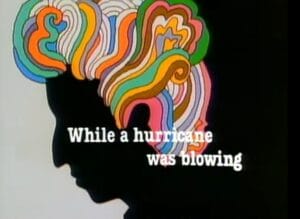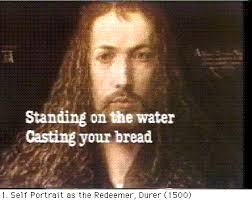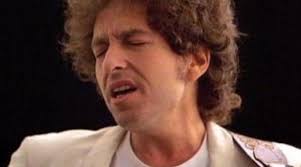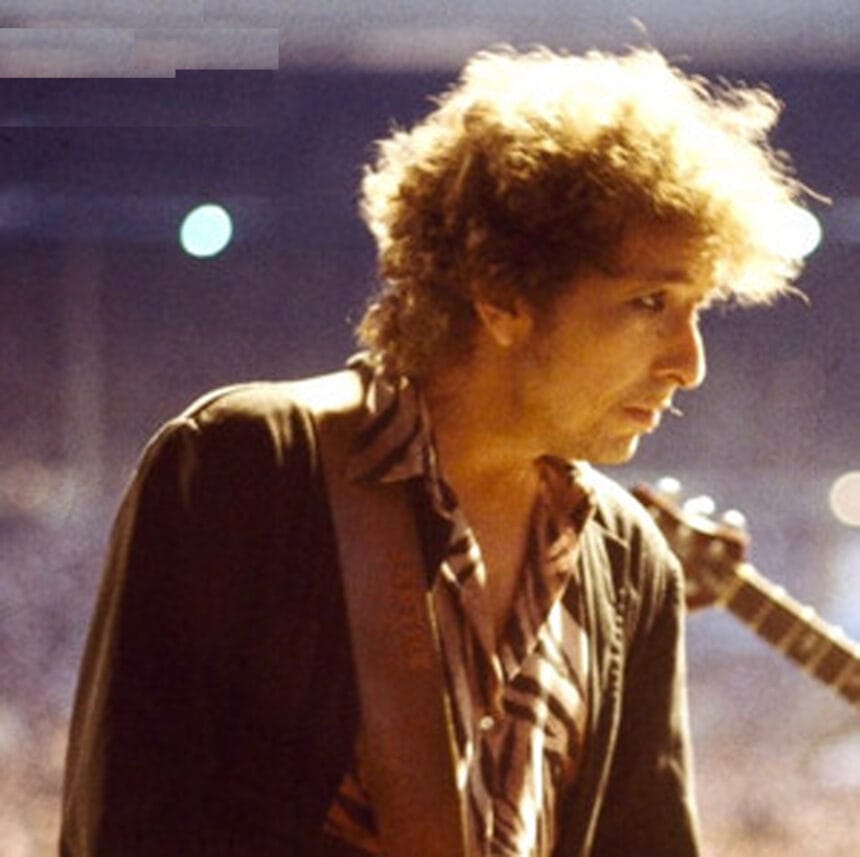EXTRACTS (here’s the full version)
Jokerman is the lead track on Infidels, the first of Dylan’s ‘post-Christian’ albums. On this collection he largely abandons the preachy tone of much of his recent work. Yet he clearly still has some strong theological concerns. The song contains a number of obvious Biblical references and even appears – at least on the surface – to espouse elements of harsh Old Testament morality. But such references are leavened by the playful humour that dominates the song. It may be that Dylan is taunting his audience. He presents us with a multiplicity of images and scenarios, as if deliberately defying their inevitable attempts to figure out his actual ‘spiritual beliefs’. Or perhaps he is even teasing himself, mocking the moralistic pretensions of his recent work, and expressing his own ‘spiritual confusion’ about exactly where he stands in terms of personal beliefs.

The key musical element of Jokerman is its expressive lightness of touch. This is demonstrated by its bouncy rhythm and continually cheerful and optimistic tone. The original recording uses a modified reggae beat, supplied by the legendary Jamaican rhythm section of Sly Dunbar and Robbie Shakespeare, along with producer Mark Knopfler’s distinctively ‘mellow’ guitar sound. In live performances it becomes a powerful and even danceable rock song, dominated by a fairly straightforward but evocative chorus. Above all, it revels in a new sense of freedom of thought. Dylan now sounds very happy and energised by being liberated from the rigidity of conventional beliefs. He celebrates this newly rediscovered autonomy with great verve. Much of the tone of the song takes us back to the cunningly humorous narratives of his classic 1965-66 output.



The first verse confronts us with a series of strikingly powerful images. The initial …Standing on the water, casting your bread… immediately has Biblical connotations. The figure being addressed is, like Jesus, miraculously walking on water (Matthew 14: 21-23) and casting bread (Ecclesiastes 11:1). We might it first think we are in for another one of Bob’s ‘sermons’. But this is immediately followed by the unforgettably graphic …while the eyes of the idol with the iron head are glowing… which sounds rather like something from a science fiction ‘B’ movie or a cheap horror film. Here there is a contrast between the sacred and the profane (or the Christian and the pagan), but it is the profane imagery which is the more striking. The fairly mundane and clichéd reference to …distant ships sailing into the mist… is followed by the dramatically visceral …You were born with a snake in both of your fists while a hurricane was blowing… The image of a figure with a snake in both fists has various mythological connotations. The Minoan ‘snake goddesses’ which were first excavated at Knossos in Crete in 1905 are representations of this image. Snakes and serpents appear in many different contexts in the ancient texts, especially in Greek and Hindu mythologies. The line also echoes the introduction to the Rolling Stones’ 1968 single Jumpin’ Jack Flash: …I was born in a cross fire hurricane/ And I howled at the mornin’ driving rain… Jack Flash, like the Jokerman, is a possibly demonic figure who also represents the liberating power of freely expressed energy …Energy… as Blake famously put it …is eternal delight…



In the final verse an apparent rival to the Jokerman appears. Using imagery that is reminiscent of elements of the Book of Revelations, we are first given a description of a distinctly fallen world: …It’s a shadowy world, skies are slippery grey… We then hear that …a woman just gave birth to a prince today and dressed him in scarlet… The following lines appear to be a prophecy of the abominations that this ‘scarlet prince’ will commit when he grows up: …He’ll put the priest in his pocket, put the blade to the heat/ Take the motherless children off the street and place them at the feet of a harlot…. This rival prince (who may be identified as the ‘anti-christ’) will, it seems, control the priesthood and the military and will sacrifice the ‘motherless children’ – a phrase from a well known blues song which here appears to stand for the poor and disadvantaged in general. The ‘harlot’ may well be the Whore of Babylon, a figure in Revelations who represents all the evil in the world. It seems that the Jokerman is here being told that he will need to fight the coming of such evil, but the final lines: …Oh Jokerman, you know what he wants/ Oh Jokerman, you don’t show any response… strongly suggest that the Jokerman will be impotent in the face of this coming apocalypse.
LINKS….



Leave a Reply